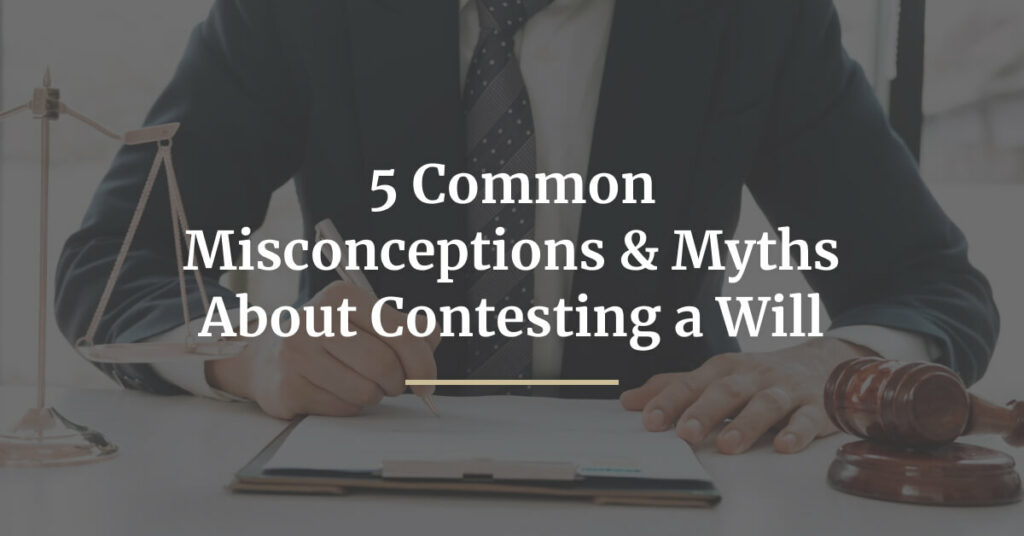5 Common Misconceptions & Myths About Contesting a Will
The process of contesting a will is often misunderstood, with many myths and misconceptions about wills circulating in public discourse. This guide by Empower Wills & Estate Lawyers aims to address and clarify these misconceptions, particularly common in estate planning and family provision cases, and provide accurate insights into the legal practice of contesting wills.
Misconception 1: Only Beneficiaries Can Contest a Will
It’s widely believed that only the beneficiaries named in a will can contest it. This misconception overlooks the broader categories of persons who may be eligible, such as a spouse, de facto partner, children, grandchildren and those who were at some period during their life dependent on the deceased, which could include stepchildren or cousins, in rare circumstances.
Myth 2: Contesting a Will Always Leads to Lengthy Court Battles
Contesting a will does not always result in protracted legal action. Many estate disputes are resolved outside of court, through negotiation and mediation, guided by experienced legal representation. The executor’s role in these disputes is to protect the interests of the beneficiaries by defending any claims. Settlements can often be reached without the need for a final court hearing, even if the case involves complex family provision claims or significant estate assets.
Misconception 3: The Executor Decides if a Will Can Be Contested
A common myth is that the executor has the final say in whether a will can be contested. In reality, the executor’s duty is to protect the estate by defending any claims, and once the disputes are resolved, to administer and distribute the estate in accordance with the will or any agreement between the beneficiaries. They do not have the authority to automatically deny a valid family provision claim. Any eligible person with a legitimate claim, such as a family member or friend who was financially dependent on the deceased, can legally contest the will regardless of the executor’s opinion.
Myth 4: A Will Cannot Be Contested if the Deceased Disinherited Someone
Many people assume that a will is irrefutable if it expressly disinherits someone. However, in Australia, disinheritance does not automatically prevent someone from contesting the will. If a person, such as a spouse or child, is left out of a will but was dependent on the deceased, they may still have grounds for a claim.
Misconception 5: Contesting a Will is Always About Money
While financial provision is often a significant factor, contesting a will isn’t always solely about money. It can often also arise because of a beneficiary’s desire to achieve fairness, or to uphold a prior promise of the deceased, or resolving other questions that may have put the validity of the will in doubt, such as questions of undue influence or lack of testamentary capacity. In many cases, contesting a will is a way for a beneficiary to rectify what they perceive as injustices in the will.
Conclusion
Navigating the complexities of contesting a will requires a clear understanding of the common myths and misconceptions that surround it. Recognising the legal realities is crucial for anyone involved in estate disputes or considering a family provision claim. Expert advice from a qualified wills and estate lawyer is invaluable in such scenarios, helping to ensure that the estate is distributed in accordance with the deceased’s wishes and the law.
Liability limited by a scheme approved under Professional Standards Legislation.
Disclaimer: the information in this article relates to NSW law as at the date it was written and is general information only. It does not constitute legal advice and should not be relied upon as legal advice. It may contain information or links to sources which are no longer current. If you have a question or legal issue, we recommend you contact a lawyer and obtain legal advice that takes into account your specific facts, circumstances, needs and objectives.

